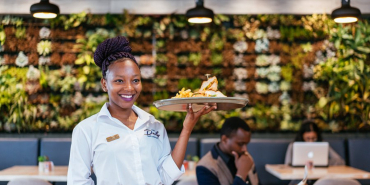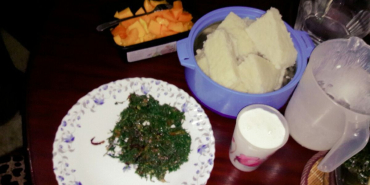Urban Kenyans Rethink Home-Hosting After Lilian Ng’ang’a’s Viral Statement

A statement by Lilian Ng’ang’a, former First Lady of Machakos County, expressing her aversion to home-hosting has sparked a nationwide debate.
Ng'ang'a's candid remark during a YouTube interview – "I don’t like guests at my place… people come with different energy" – has resonated with many, triggering a broader discussion about personal space, cultural expectations, and the evolving dynamics of social interactions. Traditionally, Kenyan society places a high value on welcoming guests into one's home as a sign of generosity and community spirit.
However, this deeply ingrained custom is being challenged by contemporary factors such as demanding work schedules, the constraints of urban living, and a growing emphasis on personal well-being. The pressures of modern urban life have led many to seek alternative social venues, such as restaurants, event spaces, or catered outdoor gatherings, to manage social obligations without the logistical challenges of at-home hosting.
John Mwaniki, Director of Witmind Learning Centre in Kiambu, explains that this shift is not merely about convenience but a practical response to the demands of contemporary life. Mwaniki notes that the combination of work, family responsibilities, and personal time makes hosting guests at home feel like an additional job.
He recalls a time when he and his wife personally prepared everything for guests but now they favour professional catering or restaurant meet-ups due to their dual careers. He also cites cramped living spaces and the complexity of creating a comfortable environment for guests as reasons for his reluctance to entertain at home.
"It ends up being stressful for both my guests and my family," he stated.
Mwaniki's sentiments reflect a broader unease among urban dwellers, who find home-hosting not only physically taxing but also emotionally fraught. He expresses discomfort about the scrutiny that often accompanies such visits, noting that guests sometimes arrive with the intention to compare or critique the household’s material possessions.
"You feel like your furniture and utensils are being judged," he said, adding that the fear of negative energy or malicious intentions serves as a real deterrent.
Additionally, the unpredictable nature of children accompanying guests poses a challenge, as noise, potential damage, and disruption of routines can transform a seemingly innocuous visit into a distressing experience. Despite the increasing preference for outsourcing hospitality, some Kenyans remain deeply committed to the traditional practice of home-hosting.
Catherine Mugendi, a mother of two and entrepreneur along Kamiti Road, believes that welcoming guests is rooted in heritage and emotional connection. Raised in an environment where social gatherings were central to family life, Mugendi now uses hosting as a means to bond and preserve familial traditions.
"I love cooking different meals. It’s a way of bonding with my family and friends," Mugendi said.
Even with a demanding schedule operating a butchery and produce shop, she carves out time for social events at home. While her husband prefers a quieter household, he accommodates her passion for hospitality, recognising its value in fostering familial ties, particularly for their children, who gain social exposure through such gatherings. Mugendi acknowledges the appeal of external venues, recognising that today's social culture increasingly associates events with curated aesthetics, diverse culinary offerings, and digital shareability.
The expectation of Instagram-worthy backdrops and stylish décor can create the perception that professionally hosted events convey greater prestige and effort. However, she maintains that for her, the emotional connection built at home far outweighs these external factors. However, opening one's personal space to others can evoke a sense of vulnerability rather than warmth for some.
Gladys Wangari, a businesswoman residing in Mombasa, attributes her hesitation to caution cultivated from a rural upbringing. She fears that guests may not always arrive with goodwill, citing cultural beliefs that people could harbour jealousy or ill intentions.
"I am afraid someone could pose as a guest and do something to bring me down," she admitted.
Wangari’s sentiments illustrate the layered anxiety that can accompany hosting, where trust, privacy, and energy play crucial roles in decision-making. For her, hiring caterers and choosing neutral venues offer both emotional safety and logistical ease, allowing her to celebrate occasions without compromising her sanctuary.
Conversely, individuals like Caren Nyota, a 33-year-old single woman, view hosting as an empowering and joyous tradition. Nyota describes elaborate preparations, hearty meals, and close connections forged during her gatherings. For her, hosting younger relatives not only strengthens familial bonds but also provides support systems that extend beyond the festivities.
However, Nyota admits she rarely visits others' homes, citing the high expenses associated with outings involving restaurants and large groups. With children present during holidays, costs can escalate quickly, which is another reason she prefers to host, especially given her greater flexibility and desire for companionship as a single woman. While her approach contrasts with Wangari’s protective stance or Mwaniki’s logistical concerns, it exemplifies the emotional fulfilment that home-hosting continues to offer to some.








Add new comment